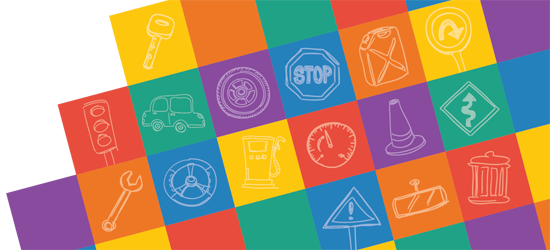
What buying a car is really going to cost you
According to the RAC, you can expect to spend around £300 a year on servicing and maintenance alone. And that's if your car's new. If you're driving a 10-year-old car - like a lot of the ingenie community - it's likely you'll spend more.
Buying a car is just the start. When you're working out how much it's going to cost you to get on the road, there are a lot of other factors to figure out.
Cost of the car
Minimal, my friend. Like, nothing. Compared with ongoing maintenance and insurance, the upfront cost is not the worry unless you've got your eye on a Porsche. In which case you won't have to worry about insurance at all because no one will cover you.
Get our buying a used car checklist to make sure you don't miss anything out.
-
Tax
Before you can even park the car in your drive, it has to be taxed. The way things used to work, you'd get the previous owner's leftover tax when you bought the car but that doesn't happen anymore.
Before you buy the car, check what it costs to tax. If you're buying an older car, it may cost quite a bit due to higher emissions. However, small cars are sometimes exempt, particularly the little guys in insurance group 1.
-
Insurance
Probably the biggest cost in the whole process. For a young driver, it's not unlikely that your insurance will be a lot more than your car.
You see, it's not just the car you're insuring. You're also getting cover for any injury (and ongoing care) to you or someone else. That's the kind of money that doesn't bear thinking about - many millions of pounds.
By the end of 2015, the average premium for a 17-year-old, new driver was £1,895. However, you could save big time with a black box insurance policy. Our average premium at that time was £1,394 for a 17-year-old, and that's before the 21% good driving discount they could get.
Read up on what factors decide the cost of your car insurance premium.
Servicing
You'll find your service schedule in the owner's manual for your car and it'll be different for every manufacturer. Generally, you'll want a service once a year to make sure everything is running nicely and keeping you safe.
You can also get interim services, which are a good idea - partly because good service records will help you sell the car later but also because a lot can go wrong in a year!
You might be tempted to skip your service because it's not mandatory. Don't. Find out more about why you need to keep a good service schedule.
-
MOT
This is the one you can't get out of. It's once a year and it checks your car against the legal minimums for a car to remain on the road.
MOT checks include: emissions, lights, steering, brakes, tyres, mirrors and a few other bits. Everything you need to be safe, basically.
Unlike a service, no work will be done during the MOT - it's pretty much just a sight check with no touching. After the MOT, you'll be told if it passed (and whether it has any 'advisories' for work that needs doing) or if it failed. You can't drive a car that failed its MOT until the problems are fixed.
Car maintenance might cost a fair bit but it could cost you a lot more if you don't keep up with it. You can be fined up to £2,500, be banned from driving and get 3 penalty points for driving a vehicle in a dangerous condition.Updated: 30th April 2020












